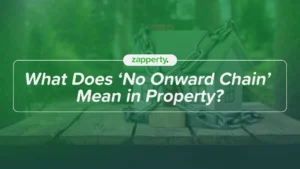Selling your home or property can seem like a daunting process, especially if you’ve not done it before! There are lots of things to do. From filling in forms and meeting deadlines to getting various different people to sign contracts, it can all be a bit of a juggle.
We don’t believe in complicating things. There are plenty of legal requirements that come with selling your home – often each with their own confusing jargon! We’re here to break things down and shed some light on some of the tricky parts so that you feel well-informed.
One legal requirement you need to be aware of is a memorandum of sale document. This blog post outlines a memorandum of sale, what goes into it, how long it takes, and other information you’ll need so you’re up to speed and ready to go.
What is a memorandum of sale?
A memorandum of sale is a document that outlines and details the key terms and conditions of a proposed property sale. Fundamentally, it’s a written record of the agreement that a buyer and seller reach.
Generally, a memorandum of sale will contain the following elements:
- Buyer’s and seller’s names and addresses, and their solicitors
- The address and information about the property (i.e. freehold or leasehold)
- HMRC Land Registry number
- The agreed sale price, deposit amount and proposed exchange and completion dates
- Mortgage details
- Payment terms
- Any assumptions, contingencies and special conditions related to the sale
You may also see them referred to informally as sales memorandums. Although a memorandum of sale is not legally binding, it is a vital part of any negotiation and sales process. Similar documents that serve the same purpose are often used in high-value transactions or deals in other areas, not just property.
Is a memorandum of sale different from a contract of sale?
Yes. Although they are similar, the memorandum of sale is not legally binding and can be amended or updated depending on the situation. A contract of sale is a legally binding document that both parties sign and must adhere to to complete the sale.
Why is a memorandum of sale necessary, and what are the benefits?
A sales memorandum has several purposes, mostly related to protecting the rights of buyers and sellers. As well as confirming the basic details of the sale, it also serves as a shared document to ensure there are no misunderstandings between buyer and seller before a contract is drawn up and signed. At their worst, misunderstandings can be costly to either or both parties, and even minor issues can waste valuable time for solicitors, estate agents, conveyancers and mortgage providers.
Finally, the memorandum of sales initiates the conveyancing process when it’s sent to the solicitors, and the legal process of transferring ownership begins. It also allows solicitors on both sides to work in parallel, rather than having to agree on every single detail.
When is a memorandum of sale required?
The memorandum of sale is required once both parties have verbally agreed on a price and the conditions of the sale. Once agreed, the estate agent, auction house or home-buying company will create and circulate the memorandum of sale as quickly as possible. If a deal is being conducted privately, it is usually the seller that draws up the sales memorandum.
Both parties will sign the document to move to the next phase of the transaction.
Common misconceptions about memorandum of sale
Even though a memorandum of sale is a type of contract, it is not legally binding, and either party can pull out at any time.
Special conditions, such as the findings of a survey, agreed-upon repairs or the inclusion of fixtures and fittings can be included in a sales memorandum.
The memorandum of sale is not necessarily final, and further negotiations and adjustments can still happen.
What happens after a memorandum of sale?
Once everything is agreed upon and signed, both sets of solicitors will begin the legal process of transferring ownership of the property which includes filling the TR1 form.
Any property listings will be changed to something like ‘Under Offer’, ‘Sold Subject to Contract (STC)’ or another variation. Surveying and any other checks by the buyers will then take place, as will things such as ID verification and proof of a mortgage offer or funds.
As long as everything goes smoothly, you’re then able to exchange contracts and complete the transaction.
How long after the memorandum of sale to completion?
It can vary, but it usually takes around 2-3 months to complete the purchase. If the process is simple and there are no complications, it may even be less. However, the findings from any surveys, mortgage decisions, problems with a chain and much more can all slow things up and prove potentially costly.
At Zapperty, we don’t need to secure funding, manage estate agents and solicitors or deal with chains. That means we can buy your house quickly, and you could sell up in as little as 7 days. In fact, we can often have an offer to you within an hour!
If you’re looking to sell your property quickly and hassle-free, call us on 0800 774 0004 or fill out the form to Get a Free Cash Offer.
Auction and Fast Sale Considerations
Selling a property quickly can feel overwhelming, especially when traditional methods take months. But what if you need to sell fast? Maybe you’re facing financial challenges, relocating unexpectedly, or simply don’t want to deal with the stress of a drawn-out process.
This is where property auctions and fast sale companies come in. And at the heart of both? The memorandum of sale, a crucial document that keeps everything moving efficiently. Let’s break it down.
Memorandums of Sale in Auctions
Imagine putting your house up for sale at an auction house. It’s an exciting but intense process, you set a reserve price, bidders compete, and if the highest bid meets your expectations, the hammer falls.
But what happens next? That’s where the memorandum of sale steps in.
As soon as the auction ends and a winning bid is confirmed, the auction house immediately issues a memorandum of sale. This document locks in the key details:
- The final agreed price
- Buyer and seller details
- The exchange contracts deadline (typically 28 days)
- Any auction house fees the buyer must pay
- Solicitor details for both parties
From this point, there’s no backing out, unlike in a traditional property sale where buyers can delay or even walk away. This gives sellers certainty and peace of mind, knowing that the deal is legally binding.
One thing to be mindful of is auction house fees. While auctions can fetch competitive offers, sellers need to account for associated costs, which may include listing fees and commissions paid to the auction house.
Looking for a quicker alternative? Learn more about how fast sales work: What Happens If You Inherit a Property with an Outstanding Mortgage?
The Role of Memorandums of Sale in Fast Property Sales
When selling through a fast property buying company, speed and convenience are the top priorities. Many homeowners opt for a quick cash sale because they need funds urgently, want to avoid the hassle of a traditional sale, or are dealing with difficult situations like divorce, inheritance, or financial strain.
Here’s how the process works:
- Once you accept an offer from a cash house buyer, the company issues a memorandum of sale to confirm the deal.
- Unlike auctions, where completion can take several weeks, fast-sale companies often complete within 7 days.
- Since these companies have the funds readily available, there’s no waiting on mortgage lenders or lengthy legal procedures.
For sellers who have experienced delays, uncertainty, or broken property chains, this approach can be a huge relief. Imagine receiving an offer today and finalising your sale within a week, it’s possible with the right fast property buying company.
Judith, a homeowner facing financial difficulties, was struggling to keep up with mortgage payments. She needed to sell quickly to avoid repossession but didn’t want the uncertainty of an estate agent dragging out the process. After receiving an offer from a quick cash buyer, the memorandum of sale was issued within 24 hours. Within a week, contracts were exchanged, and Judith had the funds she needed to move forward with her life—without months of stress.
Thinking of selling your property quickly? Find out more about mortgage timelines here: How Long Does a Mortgage Offer Last?
Which Option Is Right for You?
Both property auctions and fast sale companies offer benefits:
- Need the best price and have time? Auctions might be a good fit.
- Need speed and certainty? A fast property buying company ensures a quick, hassle-free sale.
Regardless of your choice, the memorandum of sale plays a key role in ensuring everything runs smoothly.
If you need to sell your property fast—whether through auction or a direct cash sale, Zapperty is here to help. Get a free, no-obligation offer today.




